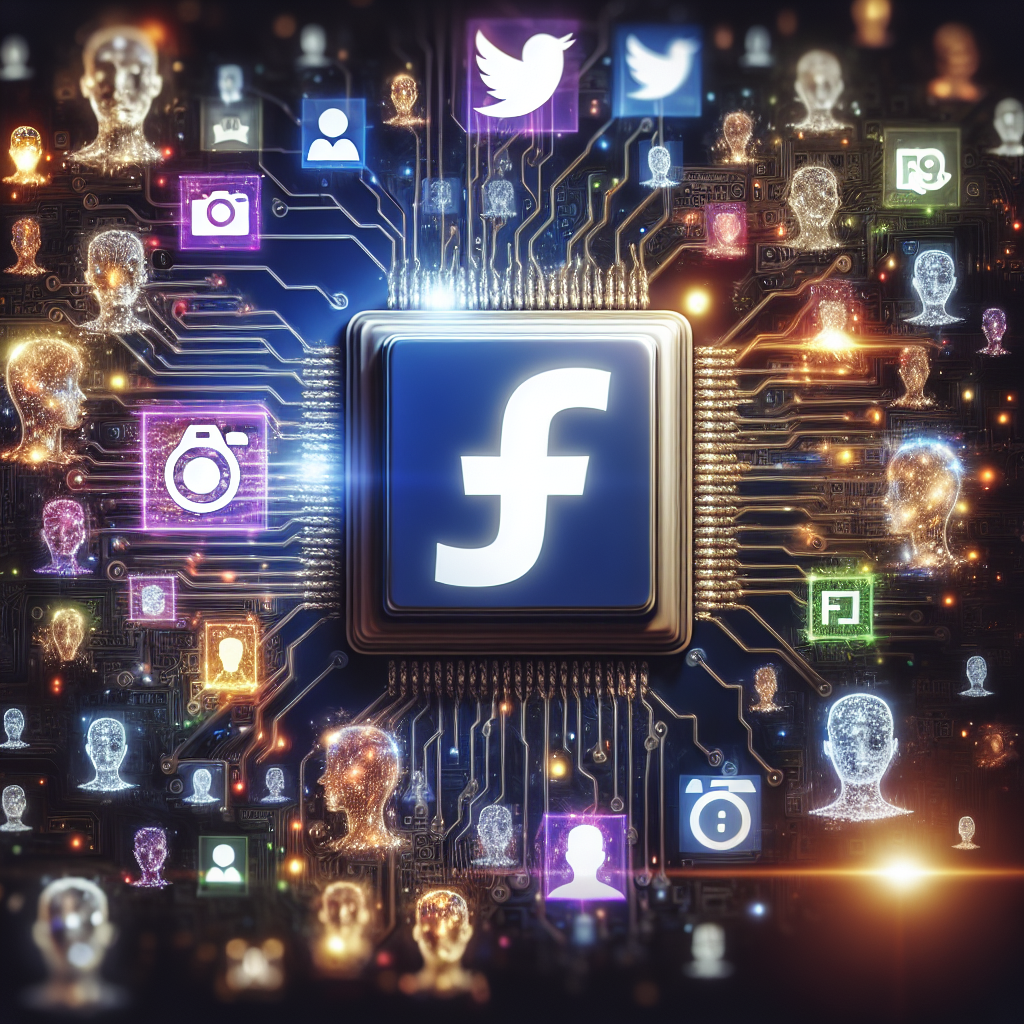The Rise of AI Influencers on Social Media Platforms
In recent years, the world of social media has seen the rise of a new kind of influencer – artificial intelligence (AI) influencers. These virtual personalities are created using advanced AI technology and have been gaining popularity and influence on platforms like Instagram, YouTube, and TikTok. With their photorealistic appearances and engaging content, AI influencers have been able to amass large followings and partner with brands for sponsored content and collaborations. In this article, we will explore the rise of AI influencers, their impact on social media, and the implications for the future of influencer marketing.
What are AI Influencers?
AI influencers are virtual characters created using artificial intelligence technology. These characters are designed to look and behave like real people, with lifelike appearances and personalities. AI influencers are able to interact with users on social media platforms, posting photos, videos, and captions just like human influencers. However, unlike human influencers, AI influencers are completely computer-generated and do not exist in the physical world.
One of the most famous AI influencers is Lil Miquela, a virtual model and musician created by the AI company Brud. With over 3 million followers on Instagram, Lil Miquela has worked with brands like Prada, Calvin Klein, and Samsung, and has released music that has garnered millions of streams on Spotify. Other popular AI influencers include Shudu Gram, created by photographer Cameron-James Wilson, and Bermuda, created by the AI company Brud.
The Rise of AI Influencers
The rise of AI influencers can be attributed to several factors. One of the main reasons for their popularity is their ability to create highly engaging and visually appealing content. AI influencers are able to post perfect photos and videos, with flawless makeup, lighting, and editing. This level of perfection is difficult to achieve for human influencers, who often spend hours editing photos and videos to create the desired effect.
Another factor contributing to the rise of AI influencers is their ability to cater to a wide range of audiences. AI influencers can be designed to represent different ethnicities, body types, and genders, making them more inclusive and relatable to a diverse audience. This diversity has helped AI influencers attract followers from all over the world, increasing their reach and influence on social media platforms.
Additionally, AI influencers are not limited by physical constraints like human influencers. They do not age, get tired, or make mistakes, allowing them to post content 24/7 and maintain a consistent online presence. This constant availability has helped AI influencers build strong relationships with their followers and establish themselves as reliable sources of information and entertainment.
Impact on Social Media and Influencer Marketing
The rise of AI influencers has had a significant impact on social media and influencer marketing. Brands are increasingly turning to AI influencers for sponsored content and collaborations, as they offer a cost-effective and reliable way to reach a large audience. AI influencers can be programmed to promote products and services in a natural and authentic way, making them valuable partners for brands looking to connect with consumers on social media.
AI influencers have also sparked a debate about authenticity and transparency in influencer marketing. While AI influencers are not real people, they are often presented as such, leading some people to question the ethics of using virtual personalities to promote products and services. Critics argue that AI influencers lack the authenticity and relatability of human influencers, and that their content can be too perfect and polished to be believable.
Despite these concerns, AI influencers have proven to be successful in driving engagement and sales for brands. Their ability to create visually stunning content and reach a wide audience has made them valuable assets for influencer marketing campaigns. As AI technology continues to advance, we can expect to see more AI influencers on social media platforms, reshaping the landscape of influencer marketing and challenging traditional notions of celebrity and influence.
FAQs
Q: Are AI influencers replacing human influencers?
A: While AI influencers are gaining popularity, they are not replacing human influencers. Human influencers bring a level of authenticity and relatability that AI influencers cannot replicate. However, AI influencers offer unique advantages, such as constant availability and flawless content, that make them valuable partners for brands.
Q: How do AI influencers make money?
A: AI influencers make money through sponsored content, brand partnerships, and collaborations. Brands pay AI influencers to promote their products and services on social media platforms, similar to how human influencers monetize their online presence.
Q: Are AI influencers ethical?
A: The ethics of using AI influencers are a subject of debate. Some people argue that AI influencers lack authenticity and transparency, while others see them as a creative and innovative use of technology. As AI technology continues to evolve, it is important to consider the implications of using virtual personalities for influencer marketing.
Q: Will AI influencers continue to rise in popularity?
A: As AI technology advances, we can expect to see more AI influencers on social media platforms. Their ability to create engaging content and reach a wide audience makes them valuable assets for brands looking to connect with consumers online. However, the future of AI influencers will depend on how they are received by the public and the evolving trends in influencer marketing.

